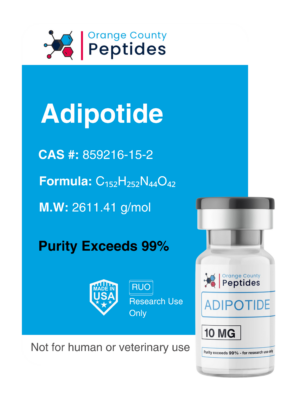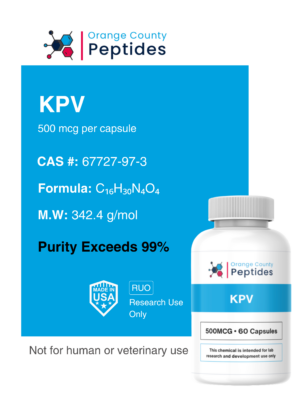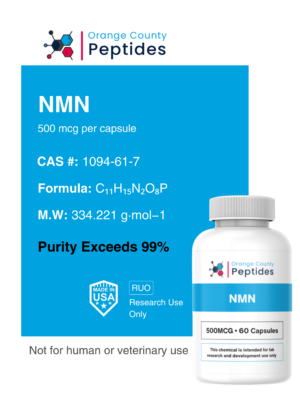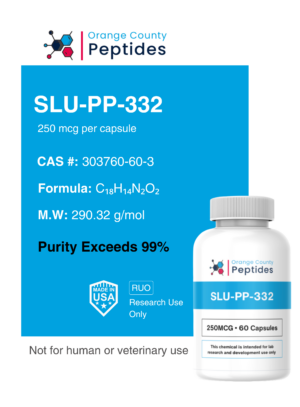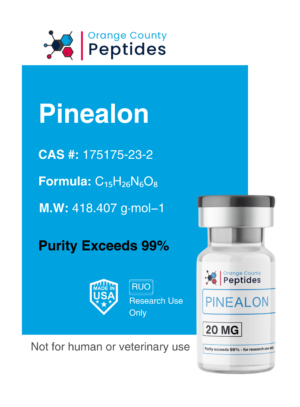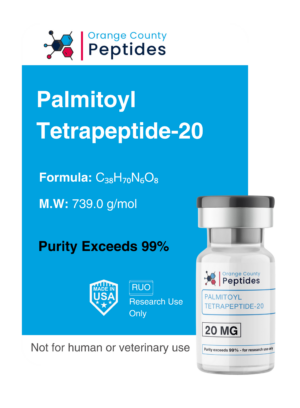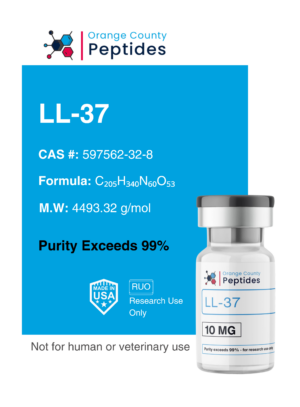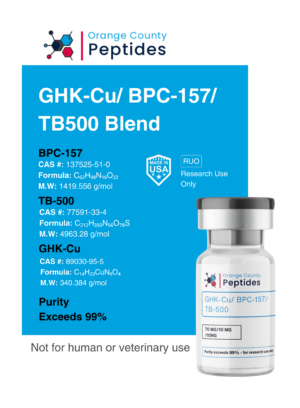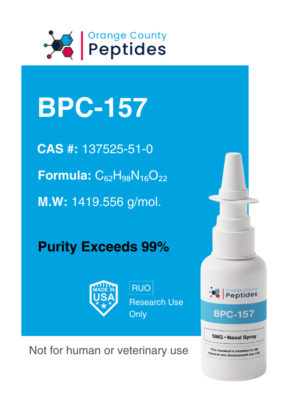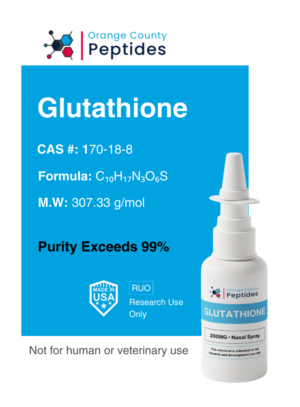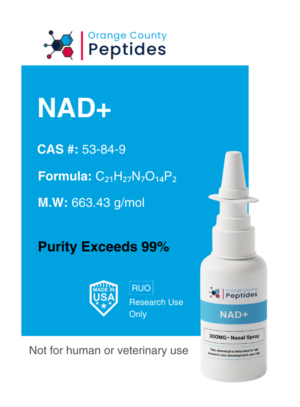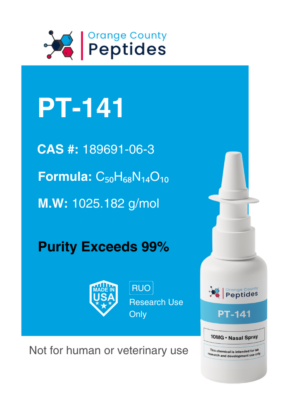KPV – 10mg
$100.00
KPV (Lysine-Proline-Valine)
KPV is a synthetic peptide composed of three amino acids: lysine, proline, and valine. It is primarily studied for its anti-inflammatory potential and ability to support skin health, particularly in conditions involving inflammation or irritation. Researchers explore KPV for its role in reducing inflammation, improving skin conditions, and supporting overall immune function.
Potential Research Applications
KPV is being studied in research settings for its role in:
- Anti-Inflammatory Effects: Investigated for its ability to reduce inflammation, making it relevant in studies on various inflammatory disorders.
- Skin Health & Dermatitis: Studied for its effects on improving skin conditions such as eczema, psoriasis, and other inflammation-related disorders.
- Immune System Modulation: Researched for its role in regulating immune responses and managing inflammation at the cellular level.
- Wound Healing: Explored for its potential to enhance tissue repair and promote healing, especially in inflammatory wounds and skin irritations.
✔ High-Quality Research Peptide – Produced under stringent quality control standards.
✔ Lab-Tested for Purity – Ensures consistency for scientific studies.
✔ Research Use Only – Not for human consumption or medical applications.
✔ Peptides – Will arrive in a lyophilized (powder) form for maximum stability.
- Description
- Certificate of Analysis
KPV is a small protein made up of three building blocks: lysine (K), proline (P), and valine (V). It comes from α-melanocyte-stimulating hormone (α-MSH), which helps control inflammation and the immune system. Since KPV is a part of α-MSH, scientists study how it may help manage inflammation and support immune health.
Researchers focus on KPV for its ability to reduce inflammation. Studies show that KPV connects with melanocortin receptors, especially the melanocortin-1 receptor (MC1R). This receptor helps lower inflammation and control immune responses. By activating MC1R, KPV helps calm tissue inflammation. Because of this, scientists explore how KPV may help with long-term inflammatory conditions and immune-related diseases.
KPV also supports wound healing and tissue repair. It helps the body heal by guiding immune responses and reducing damage from stress on cells. Researchers study how KPV may improve skin health, especially in healing cuts, burns, and skin inflammation. Since the immune system plays a big part in healing, KPV’s ability to control inflammation makes it an important research topic.
In addition to healing, KPV helps manage the immune system. It affects immune cell activity and keeps a balance between signals that increase and decrease inflammation. Researchers study its role in treating immune-related diseases like allergies and autoimmune conditions. By helping the body control its immune response, KPV may improve overall immune health.
KPV may also help protect the brain and nervous system. Too much inflammation can speed up brain diseases. Scientists study whether KPV can slow this process. Since brain health depends on a balanced immune response, KPV’s role in reducing inflammation makes it a key topic in brain and nerve research.
Since α-MSH affects skin color by controlling melanin levels, KPV may also influence pigmentation. However, scientists are still studying this effect. Researchers continue to explore how KPV may help with skin health and inflammation-related conditions.
In summary, KPV shows promise in controlling inflammation, supporting the immune system, promoting wound healing, and protecting the nervous system. Since inflammation and immune balance affect many areas of health, researchers continue to study its medical benefits.
For Research Use Only.
No Certificate of Analysis images available for this product.
Frequently bought together


